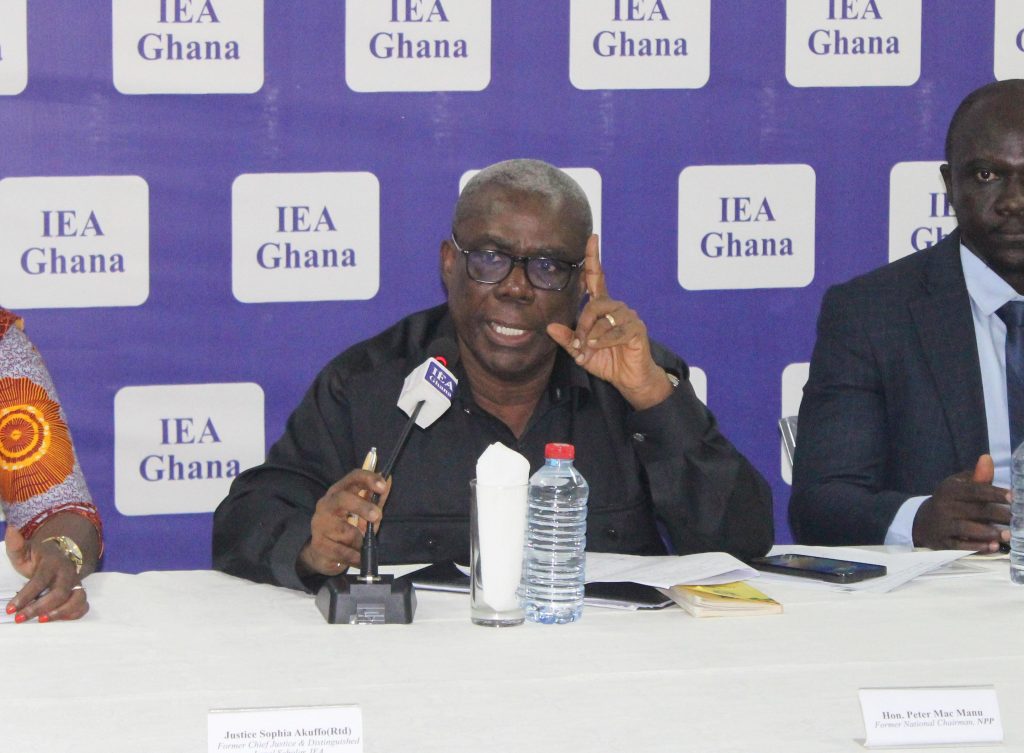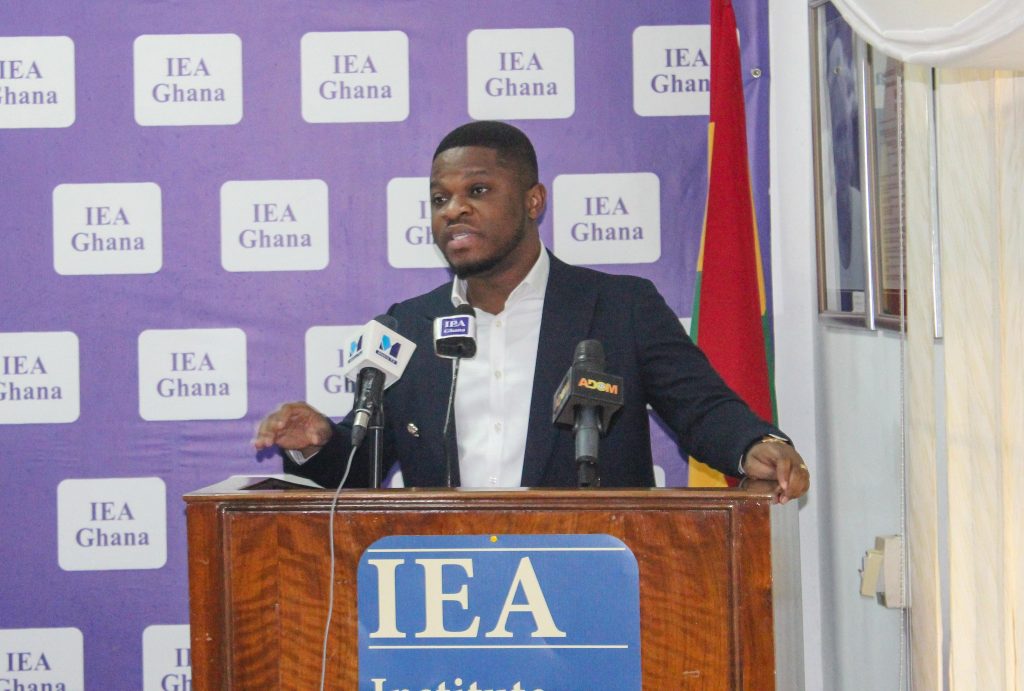By Benjamin A. Commey
Accra, March 30, GNA— Five major political parties, including the governing New Patriotic Party (NPP) and the opposition National Democratic Congress (NDC), have backed calls for the amendment of the 1992 Constitution to meet the current development needs of the country.
According to the parties, the amendment was necessary to address the lapses created in the constitution over the period and deepen the country’s democracy.
The rest of the parties are the Convention People’s Party (CPP), the People’s National Convention (PNC) and the Progressive People’s Party (PPP).
They gave their backing when they took their turns at the Institute of Economic Affairs (IEA) Constitutional Review Seminar in Accra, on Wednesday.
The parties, aside the CPP, which proposed a complete overhaul of the Constitution, backed calls for certain aspects of the document to be amended to meet the needs and aspirations of Ghanaians.
Mr Peter Mac Manu, a former National Chairman of the NPP, said, as a Party, it was opposed to a complete overhaul of the Constitution, explaining that, the document, despite its defects, had served the country well over the past 30 years.
“We, in the NPP are not calling for a total overhaul of the Constitution. We believe that the document has served Ghana very well, being the first time that we have been in a constitutional democracy continuously for over 30 years and we must pat ourselves on the shoulder.”
The NPP, however, support an amendment of certain provisions, including Article 55(3) to allow for the election of Metropolitan, Municipal and District Chief Executives (MMDCEs) on partisan basis, he said.

Government, between 2018 and 2019 pursued the amendment of Article 55(3) to enable multiparty participation at the districts and 243(1) for the election of MMDCES as part of efforts to reform the local governance system and devolve more power and resources to the local communities.
However, a planned national referendum scheduled for December 17, 2019 was cancelled for lack of adequate public knowledge and broad-based consensus on the reforms it would entail.
Mr Manu indicated that, after three decades of practicing constitutional rule and multiparty democracy, a political party should not be restricted by any law from participating in any election in the country.
“Obviously, we say we are living in a democracy so, why are we restricting political parties from participating in some democratic exercises? One should ask him or herself,” he said.
“We, therefore, call for an amendment of Article 55(3) which guarantees a party’s freedom to participate in shaping the political will of the people, to disseminate information on political ideas, social and economic programmes of a national character and sponsor candidate for elections to any public office. ”
Mr Sammy Gyamfi, National Communications Officer, NDC, blamed the lack of consensus, particularly among the two major political parties for the failure to implement recommendations by the Professor Albert Kodzo Fiadjoe’s Commission of constitutional review.
He indicated that “any conversation about amending the 1992 Constitution will be totally meaningless unless it is linked to a deliberate effort aimed at achieving consensus between the political parties and all stakeholders in our democracy.”
The NDC’s Communications Officer, among other things, proposed changes in the country’s electoral system, to allow for an early election to be held specifically in November, to allow for ample time for a smooth transition for the next government.

He also called for a capping on the appointment of judges to the Supreme Court, with a maximum of 15.
Nana Yaa Jantuah, General Secretary, CPP, called for amendment of sections of the Constitution, which allowed the Speaker of Parliament to assume the Head of State position in the absence of the President and the Vice, saying it defied the rules of checks and balances.
“Somebody in the executive should take over when the President and the Vice are not around because, if a Speaker of Parliament takes over as President, he takes executive decisions. At the end of the day, if it goes back to Parliament who looks at it. That one is not right,” she said.
Madam Janet Nabla, General Secretary of the PNC, advocated the amendment of the Council of State to include former presidents to enrich engagements with the President at that level.
Also, she said “it’s the hope of the PNC that any political party that gets into power will practice a lean government,” stressing that, some ministries such as roads and railways must be combined to reduce financial burden on the State.
Mr Remy Edmundson, National Secretary of the PPP, proposed five major changes, including the separation of the Attorney General from the Minister of Justice, strict enforcement of the Public Asset Declaration Act and preventing Members of Parliament from holding ministerial positions.
GNA